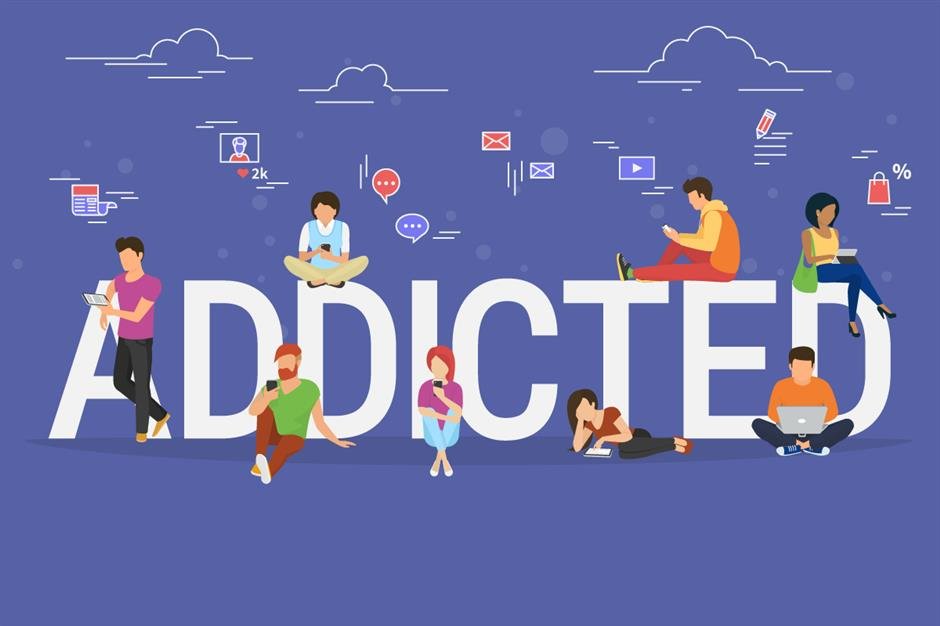Understanding Behavioral Addictions: A Deep Dive
Behavioral addictions can significantly impact you neuroscience of behavioral addictions reveals that these addictions share many similarities with substance use disorders in terms of brain mechanisms and neural pathways.
Behavioral addictions, also known as process addictions, involve a compulsion to engage in rewarding non-substance-related behaviors despite negative consequences. Unlike substance addictions, which involve physical dependency on drugs or alcohol, behavioral addictions are characterized by an overwhelming urge to perform certain activities that provide psychological rewards.

Understanding behavioral addictions is crucial for effective prevention, diagnosis, and treatment. As research in this field continues to evolve, it’s important to approach these conditions with empathy, scientific rigor, and a commitment to improving the lives of those affected.
Characteristics of Behavioral Addictions
Behavioral addictions share several characteristics with substance addictions:
- Compulsion to engage in the behavior
- Loss of control
- Continued engagement despite negative consequences
- Craving or preoccupation with the behavior
- Temporary relief or pleasure from the behavior
- Tolerance (needing more of the behavior to achieve the same effect)
- Withdrawal symptoms when unable to engage in the behavior
Neurobiology of Behavioral Addictions
Behavioral addictions affect the brain’s reward system similarly to substance addictions:
- Dopamine release in the nucleus accumbens
- Changes in the prefrontal cortex affecting decision-making and impulse control
- Alterations in the amygdala impacting stress and emotion regulation
Diagnosis and Assessment
Diagnosing behavioral addictions can be challenging. Mental health professionals use various tools:
- DSM-5 criteria (currently only includes Gambling Disorder)
- Specialized assessment scales for specific behavioral addictions
- Clinical interviews and observation
Understanding
Explore Common Types of Behavioral Addictions
Gambling Addiction
Gambling addiction, also known as compulsive gambling or gambling disorder, involves the uncontrollable urge to keep gambling despite negative consequences.
Signs and Symptoms
- Preoccupation with gambling
- Needing to gamble with increasing amounts of money
- Restlessness or irritability when trying to cut down
- Chasing losses
- Lying to conceal gambling activities
Impact
- Financial troubles
- Relationship problems
- Legal issues
- Mental health concerns (depression, anxiety)

Internet Addiction
Internet addiction involves excessive or poorly controlled preoccupations, urges, or behaviors regarding computer use and internet access.
Signs and Symptoms
- Losing track of time online
- Neglecting real-life relationships and responsibilities
- Feeling anxious or depressed when unable to access the internet
- Sleep disturbances due to late-night internet use
Impact
- Social isolation
- Poor academic or work performance
- Physical health issues (e.g., back pain, eye strain)

Gaming Addiction
Gaming addiction involves compulsive use of video games, leading to significant impairment in various life areas.
Signs and Symptoms
- Preoccupation with gaming
- Withdrawal symptoms when unable to play
- Tolerance (needing to play more to get the same enjoyment)
- Loss of interest in other activities
Impact
- Poor academic or work performance
- Neglect of personal hygiene
- Sleep deprivation
- Social withdrawal

Shopping Addiction
Shopping addiction, also known as compulsive buying disorder, involves an obsession with shopping and buying behavior that causes adverse consequences.
Signs and Symptoms
- Buying unnecessary items
- Feeling a rush or high when shopping
- Hiding purchases from family members
- Financial difficulties due to overspending
Impact
- Debt and financial problems
- Relationship issues
- Cluttered living spaces
- Feelings of guilt and shame

Sex and Pornography Addiction
Sex addiction involves compulsive sexual thoughts and behaviors that interfere with daily life. Pornography addiction is a subset focusing specifically on compulsive pornography consumption.
Signs and Symptoms
- Persistent, intrusive sexual thoughts
- Engaging in risky sexual behaviors
- Neglecting responsibilities due to sexual activities or pornography use
- Inability to stop despite negative consequences
Impact
- Relationship problems
- Legal issues (in some cases)
- Sexual health risks
- Emotional distress

Exercise Addiction
Exercise is a great way to stay in shape and live a healthy life. However, some individuals can become obsessed with exercise, leading them to continue excessively working out despite harmful consequences to their health and well-being. Fortunately, exercise addiction is treatable with therapies like CBT and DBT.
Signs and Symptoms
- Exercising despite injury or illness
- Prioritizing exercise over other activities
- Experiencing withdrawal symptoms when unable to exercise
- Increasing exercise intensity or duration to feel the same effects
Impact
- Physical injuries and health problems
- Disruption of work and personal relationships
- Neglect of other responsibilities
- Co-occurrence with eating disorders

Take the First Step to Recovery
Your journey to healing begins here. Reach out today and start your path to a healthier, happier life. Our compassionate team is ready to support you every step of the way.
 Call us:(+233) 0531380360
Call us:(+233) 0531380360  Email
Email 
